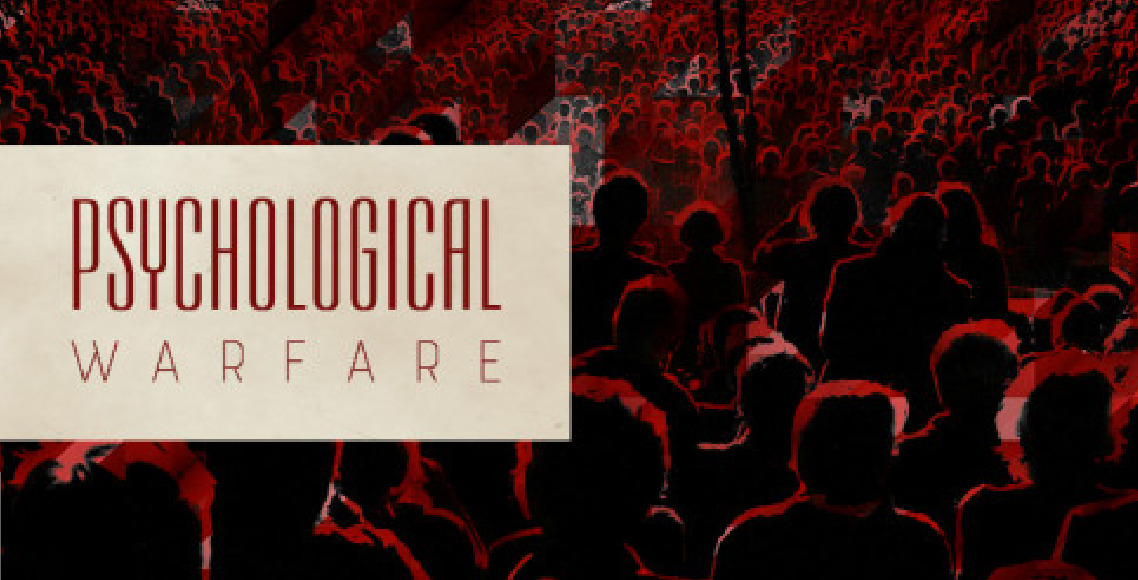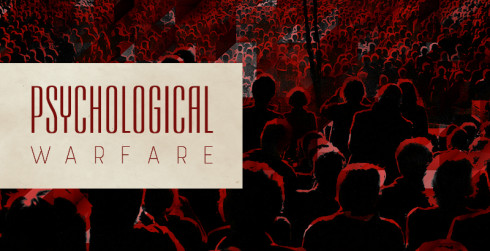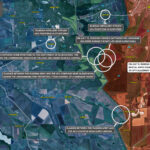Despite its existence, the “psychological front” has another meaning in current tensions.
Written by Lucas Leiroz, journalist, researcher at the Center for Geostrategic Studies, geopolitical consultant.
In all situations of armed conflict, something that runs parallel to the fighting on the frontlines is the psychological clash, with both sides trying to exhibit force and intimidate the enemy to give up fighting. This constant attempt to morally defeat the opponent and end the “will to fight” is already beginning to be observed by some western analysts, who are writing reports on the psychological moves on the Ukrainian front. However, the pro-Western perspective of these analysts prevents them from assessing the scenario accurately.
In a recent article for The Sunday Times, Mark Galeotti, a professor and author of more than 20 books on Russia, commented on some possible actions by Russia and Ukraine in the context of psychological warfare. According to the author, Russia would be trying to show power through its international partnerships. He mentions the case of Belarus, with which Moscow negotiated an agreement to allocate nuclear weapons in the near future, improving the defense capacity of both countries. For Galeotti, the measure would have the sole objective of intimidating the West, in addition to the Belarusian government itself which would be somehow coerced into accepting Russian actions, not indicating the real strength of relations between the two states.
The same author also makes some comments regarding Russian-Chinese cooperation. According to him, Moscow would be in a “circle” imposed by Beijing, where the possibilities of acting would be limited to the current sphere of the conflict, not admitting in any case the possibility of nuclear escalation. The expert seems to believe in some sort of limitation in the Russian-Chinese partnership, within which the Russian side would supposedly be at a disadvantage, having to accept conditions imposed by the Chinese to garner international support. In this sense, he does not believe that Putin can actually authorize the use of nuclear weapons, given the “Chinese limitations” which is why Russia would supposedly be acting only in the scope of psychological deterrence by sending weapons to Minsk.
Then, Galeotti also mentions some of the reasons why the Russian government would be avoiding promoting more open and symmetrical escalations. He exposes that in the same way that the use of nuclear weapons would generate a strong international reaction and “isolation” for Russia, options such as the allocation of more mobilized troops and the beginning of more incisive attacks would generate internal reaction in Russia, with the decrease of the government’s popularity and the emergence of anti-war protests. So, facing the impasse and the multiplicity of “side effects”, the Russians would be for now just limiting themselves to the psychological strategy, without making clear their next steps. However, the author does not mention any empirical evidence to corroborate his thesis, as expected.
Galeotti also mentions the Ukrainian side’s mental game. He finds it suspicious that Kiev has made it clear several times that it plans to attack Melitopol. According to the analyst, there are two possible conclusions: either the objective would be to distract the Russians and make them focus on the defense of Melitopol while they become vulnerable in other areas of the frontlines; or in fact there would be a “double bluff”, trying to induce the Russians to assume this strategy – in this scenario Moscow forces would not improve their positions in Melitopol, making it an easier target for Kiev. Galeotti is not successful in explaining which of the two scenarios is more likely, being only concerned at emphasizing that there is some kind of psychological scheme involved.
These assumptions are important, but they can become mere unsubstantiated guesswork if the analyzes are not concluded in a coherent way. In fact, in any conflict, strategists try to distract the enemy with different possibilities of action, making difficult the task of choosing which possibility to bet on. But that does not explain all the actions of a state on the battlefield even more so when the conflict involves forces with such different combat conditions.
Certainly, Russia tries to confuse its opponents to achieve military advantages, but this is not the case with regard to the Putin government’s delay in making incisive decisions on the battlefield. Moscow has been very clear in its actions since the start of the special military operation, always warning in advance about the possibility of escalation and avoiding as much as possible to implement measures that could make the conflict even worse. There is therefore no evidence that Galeotti is right in supposing that Russian “indecision” is due to an attempt to confuse the enemy, avoid internal reactions or diplomatic isolation.
Another mistake made by the author is to analyze assuming the Western point of view with regard to Russia. For example, the allegation that Moscow is playing psychological warfare with the West by allocating nuclear weapons in Belarus is baseless, since this was also a sovereign decision of the Belarusian government itself, which plans to defend its people and territory in the face of foreign threats and provocations. Furthermore, assumptions about a Russian diplomatic dependence on China are similarly weak. There is no “circle” imposed by Beijing on Moscow – both countries are cooperating in a broad and unlimited way to achieve common goals, since they share the same geopolitical enemies.
On the other hand, for Ukrainians, the psychological issue is exaggerated by the author – as well as by other pro-Western experts. Indeed, Kiev is not just distracting Moscow when it bluffs about Melitopol, Crimea and other matters. Kiev is simply trying to gain time in order to gather strength and then plan any reaction. For now, no efficient action seems feasible for the Ukrainian side. The so-called “spring counteroffensive” has already been discredited even among Ukrainian and Western generals. It is certain that there will be some move, but nothing indicates a relevant progress.
Indeed, in order to understand the psychological level of the conflict, it is necessary to take into account who the real sides are. It is not a war between Moscow and Kiev, but between the collective West and Russia. In its psychological games, the Russian side is interested in dissuading the West, not in confusing the virtually defeated Ukrainian army. In contrast, Kiev’s proxy government resorts to psychological games, even with support from the mainstream media, because this is its only chance to continue fighting for Western interests.




